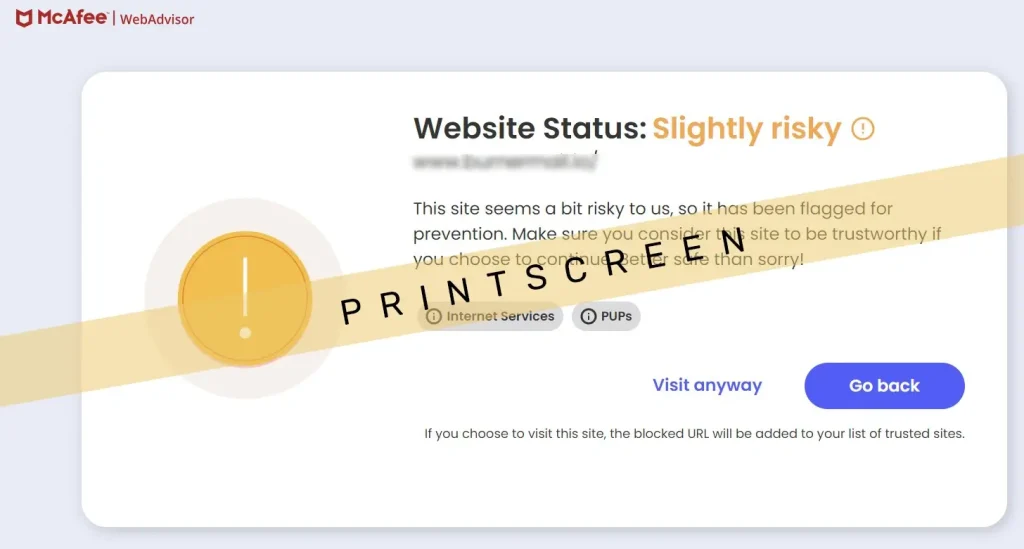Before looking for the best burner email, you need to understand its concept and purpose.
Also known as a temporary email or disposable email, it is a type of email address created for specific, one-off use, expiring after a certain period.
The purpose of this type of email is to avoid receiving spam and to protect the user’s privacy. However, users of this type of service don’t always make the best use of its features.
As a result, the market has been looking for ways to avoid it in its services, as we’ll see below.
How does burner email work?
How this type of email works is simple: the user accesses a website that offers to create a burner email. This address is then automatically generated. No registration or password is required.
These emails have a limited lifespan, ranging from minutes to hours. After this period, the email and its contents are automatically deleted.
Those in favor of this type of service argue that with the increase in online services that require registration, especially sites that seemingly have no commitment to privacy and data protection, temporary email services have become essential to avoid excessive spamming of these services and the leaking or selling of personal data to other companies.
However, while this type of service can be really useful in protecting privacy and fighting spam, it can also be used by malicious people. And because it quickly became a hard bounce, it raised alarm bells among companies, which have already begun to mobilize to identify and prevent registrations made with this type of email.
Common uses for burner email
There are cases where this email can be really useful, especially if your focus is on data privacy.
Questionable websites
For example, if you’re visiting a website that you don’t know or that isn’t totally transparent about what it does with the data that is registered there, using a disposable email can keep your email away from spam messages.
Common but not recommended uses
There are some cases where users choose to use sensitive email services, but we don’t recommend it, such as:
- E-commerce registrations: by registering on a website to make purchases using a temporary email you will be able to perform the initial validation, but you will probably be unable to log in for future actions, as many have already instituted 2-factor authentication. In addition, you won’t be able to receive transactional messages, such as purchase confirmation, delivery status and so on. Many of these sites are already prepared against the use of these emails.
- Creating test accounts on online services: because they follow the same logic as e-commerce sites, with double optin, two-factor authentication and real-time email verification services, it will be very difficult to succeed with new registrations.
Risks of using burner email
As journalist Andy Lewis says, ‘If you’re not paying for something, you’re not the customer; you’re the product being sold‘. So, although it’s tempting to use burn email services, you should always be aware that there are some risks or limitations to using some of these services, such as:
- Limitations of use: these services are not designed for long-term communication, nor for receiving important information.
- Excessive advertising: most of these services will expose you to a huge number of lightbox ads (such as Google Vignette), making the user experience rather unpleasant.
- Loss of access: once the temporary email has been deleted, you will lose access to messages received via that email and you will no longer be able to use the same email address.
- Data protection: not all services have published privacy and data protection policies or commitments to legislation such as the GDPR and LGPD. In some cases, the sites even belong to people, not companies.
- Anti-virus alert: some services are so risky that even anti-malware services are triggered in the browser (see image below).
- No sending: temporary email services are usually for receiving emails, not sending them.

Criteria for choosing the best burner email
If you still think you want this type of service, then our recommendation is that you pay attention to some important points relating to the quality and commitment to privacy of these services.
So, to choose the best service, look for:
Commitment to Data Protection and Privacy
When you access the website of a burner email service, immediately look for its privacy and data protection policies. This should be a fundamental commitment.
See if there is a company behind the service, where it is located, if it is mandatorily subject to a data protection law, etc.
Some of the platforms surveyed stated in their terms of use that they may share your personal data for other purposes, including offering products, services and promotions. Another states that all data processed by the platform becomes the platform’s property.
Ease of use
Make sure the service doesn’t require too many steps and simply offers an email address. A simple page with the email address and an inbox.
Additional features
Some services offer extra features, such as the ability to forward emails or create temporary email aliases. However, in these cases you may be more exposed, as you will need to sign up or register.
Five popular services
Although there are many services of this kind, we’ve selected five for you to get to know. If you’re looking for the best burner email, remember the criteria we presented earlier and see if the service you choose suits your needs.
- 10Minute Mail: temporary email service offered by a company in Israel called Privatix LTD, which only works for 10 minutes and is discarded immediately afterwards.
- Guerrilla Mail: a temporary email service that offers email addresses with random characters and sends emails via these addresses.
- EmailOnDeck: from a California-based company, Super Privacy Service LTD c/o Dynadot, is one of the most popular services in this segment.
- DisposableMail: a service registered in the Czech Republic, by GRANSY S.R.O D/B/A SUBREG.CZ, where you can choose the period that the temporary email will be disposed of, from 60 minutes to two weeks.
- Temp-mail.org: service belonging to the same company as 10Minute Mail, the Israeli company Privatix LTD.
Conclusion
Temporary email services are tools for those looking to protect their privacy and avoid spam in a world that is increasingly digitalized and dependent on online registrations.
Although they offer significant advantages, such as spam protection and privacy preservation, they also have some limitations and risks that users should be aware of.
Choosing the best burner email should be done carefully, considering criteria such as commitment to privacy, ease of use and additional features.
Ultimately, responsible and conscientious use of these services can help keep your personal information safe while surfing the web.
FAQ
What is a burner email and what is its purpose?
Also known as a temporary or disposable email, it is an email address created for specific, short-term use. It can be useful to avoid receiving spam and protect privacy when registering on websites of dubious origin or for occasional access. This type of email expires after a certain period, ensuring that you don’t receive unwanted emails in the long term.
What are the risks of using a burner email?
The main risks include losing access to important information after the email expires, the possibility of being exposed to excessive advertising and, in addition, not all services guarantee adequate data protection, which can pose a risk to the user’s privacy.
How do I choose the best burner email?
To choose the best service, it’s important to check the service’s commitment to privacy and data protection, the ease of use of the platform and the additional features offered. Look for services that have clear privacy policies and are easy to use.
What are some of the popular burner email services?
Some of the popular services include 10Minute Mail, Guerrilla Mail, EmailOnDeck, DisposableMail and Temp-mail.org. Each of these services has its own peculiarities, such as email duration, ease of use and the location of the provider. Choosing the ideal service will depend on your specific needs and the security criteria you value.
Can I use a burner email for online purchases and registering for services?
Although it is possible to use it for online purchases and service registrations, this practice is not recommended. Many e-commerce platforms and online services use two-factor authentication and send transactional emails, such as purchase confirmation and delivery status, which require a permanent email address. In addition, many of these sites are already prepared to identify and block temporary emails.



